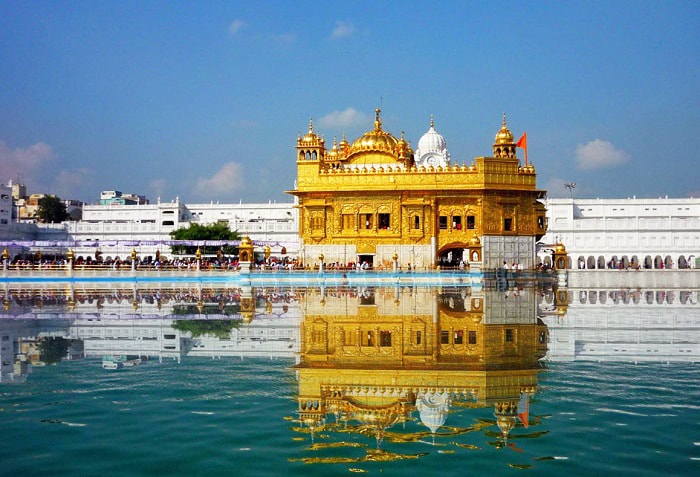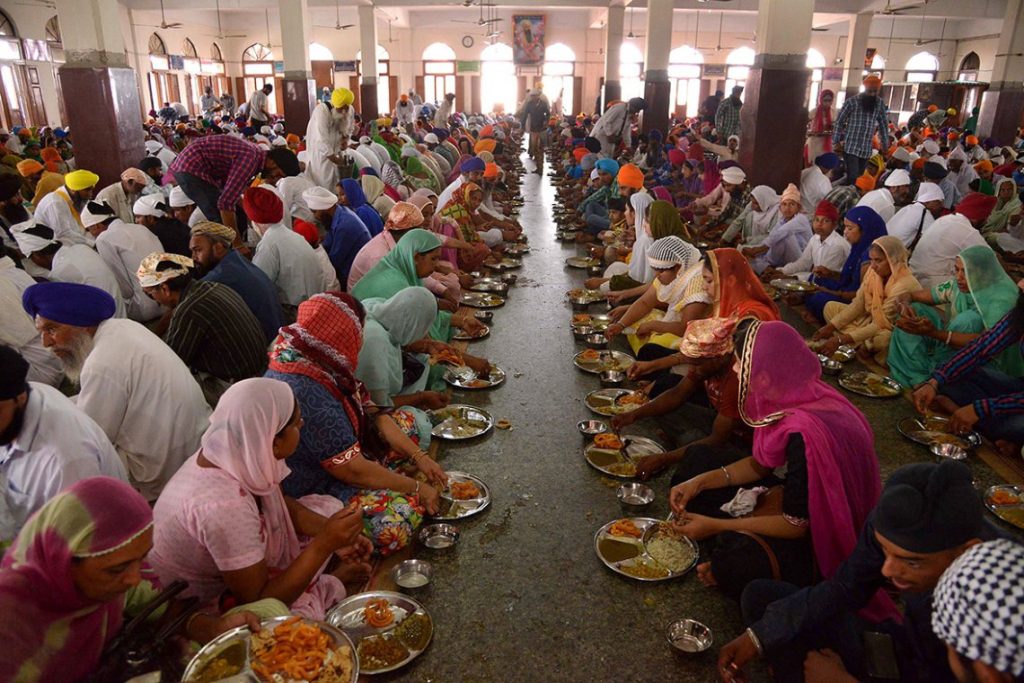




Who is Sikh?.

Title: Sikhism: A Path of Equality, Devotion, and Social Responsibility
Introduction:
Sikhism, founded in the 15th century in the Punjab region of South Asia, is a vibrant and inclusive monotheistic religion that continues to inspire millions of followers worldwide. With its core principles of equality, devotion, and social responsibility, Sikhism offers a unique spiritual path that resonates with people from diverse backgrounds. In this article, we will explore the key tenets, practices, and contributions of Sikhism, shedding light on its profound impact on both individuals and society as a whole.
Beliefs and Teachings:
At the heart of Sikhism lies the belief in one formless, timeless, and omnipresent God, referred to as Ik Onkar. Sikhism emphasizes the importance of selfless service, compassion, humility, and the pursuit of truth. The teachings of the ten Sikh Gurus, recorded in the Guru Granth Sahib, serve as a guiding light for Sikhs, providing wisdom and insights into leading a righteous life.
Equality and Social Justice:
Central to Sikhism is the concept of equality. Sikhs believe in the inherent dignity and worth of every human being, irrespective of gender, caste, race, or social status. The principle of “Ik Onkar” underscores the oneness of all humanity, fostering a sense of unity and brotherhood. Sikhs strive to eradicate discrimination and work towards social justice, exemplifying the teachings of their faith through acts of seva (selfless service) and philanthropy.
Distinct Identity:
The Sikh identity is visually recognizable and serves as a testament to their faith. Sikhs adhere to the Five Ks, which include Kesh (uncut hair), Kangha (a wooden comb), Kara (a steel bracelet), Kachera (cotton undergarments), and Kirpan (a ceremonial sword). These symbols signify a commitment to Sikh values, moral discipline, and readiness to defend righteousness and protect the weak. The turban worn by Sikh men and some women represents dignity, spirituality, and equality.
Gurdwaras and Community Life:

Gurdwaras, meaning “the Guru’s door,” are Sikh places of worship and community gathering. These sacred spaces are open to people from all walks of life, regardless of their religious background. Gurdwaras offer langar, a free community kitchen where volunteers prepare and serve meals to anyone in need, promoting the spirit of equality and selfless service. The communal singing of hymns, known as kirtan, and the recitation of prayers contribute to a spiritually enriching environment.
Contributions to Society:

Sikhs have made significant contributions to society in various fields. They are renowned for their bravery, loyalty, and martial skills. Sikhism’s emphasis on education has led to the establishment of numerous educational institutions, promoting both academic and spiritual growth. Sikh communities actively engage in humanitarian efforts, disaster relief, and charitable initiatives worldwide, upholding the principle of seva.
Conclusion:
Sikhism, with its principles of equality, devotion, and social responsibility, offers a profound and uplifting spiritual path. The Sikh community’s commitment to selfless service, social justice, and communal harmony serves as an inspiration to people around the globe. By embodying the core values of Sikhism and living a life of righteousness and compassion, Sikhs continue to make a positive impact on individuals and society at large.
Langar in Sikhism: Embracing Equality and Community

Introduction: Langar holds a significant place in Sikhism as a timeless tradition that embodies the core principles of equality, selfless service, and communal harmony. Rooted in the teachings of Guru Nanak Dev Ji, the founder of Sikhism, langar represents the concept of sharing and providing free food to all, regardless of caste, creed, gender, or social status. This article explores the essence of langar, its historical origins, its role in promoting equality, and its enduring impact on Sikh communities worldwide.
Historical Origins: Langar traces its roots back to the early days of Sikhism, with Guru Nanak Dev Ji establishing the tradition during his time. Guru Nanak Dev Ji sought to challenge the prevailing societal norms of inequality and discrimination, emphasizing the importance of sharing and serving humanity. Langar was envisioned as a platform for breaking down barriers and fostering a sense of unity among people from diverse backgrounds.
Principles of Equality and Service: The core principle of langar is the belief in the equality of all human beings. Inside the langar hall, known as the “Guru ka Langar,” everyone sits together on the floor, irrespective of their social standing, to share a meal. By removing the distinctions of wealth, social status, and hierarchy, langar promotes a sense of humility, equality, and oneness among all participants. The act of selflessly serving others is considered an integral part of Sikh faith, and langar serves as a practical manifestation of this belief.
Community Bonding and Hospitality: Langar serves not only as a means of addressing hunger but also as a vehicle for building strong community bonds. It provides an inclusive environment where individuals can come together, interact, and forge connections beyond societal boundaries. Sikh gurdwaras (places of worship) across the world have langar halls where individuals from various backgrounds, irrespective of their faith or ethnicity, can come and partake in a communal meal. This practice fosters a spirit of hospitality, love, and compassion, leaving a lasting impact on both participants and volunteers.
Promoting Seva (Selfless Service): Seva, or selfless service, is one of the core tenets of Sikhism. Langar plays a crucial role in promoting this virtue by offering individuals an opportunity to contribute their time and efforts towards the well-being of others. Sikh volunteers, known as sevadars, prepare and serve the langar meals with dedication and humility. This act of seva not only nourishes the body but also nourishes the soul, fostering a sense of selflessness and a commitment to serving humanity.
Impact and Outreach: The tradition of langar extends beyond the boundaries of gurdwaras. Sikh communities actively engage in langar sewa (service) during religious and cultural events, as well as in times of crises and disasters. Through langar initiatives, such as langar on wheels and langar for the homeless, Sikh organizations strive to address food insecurity and alleviate the suffering of those in need. These efforts serve as a testament to the enduring impact of langar in promoting social welfare and fostering a sense of responsibility towards the community.

Conclusion: Langar exemplifies the core values of Sikhism by promoting equality, community bonding, and selfless service. As a tradition deeply rooted in the teachings of Guru Nanak Dev Ji, it continues to be a beacon of hope, compassion, and inclusivity in Sikh communities worldwide. By embracing langar, Sikhs embody the spirit of service and extend a warm invitation to people from all walks of life to partake in the divine experience of unity, equality, and love.

